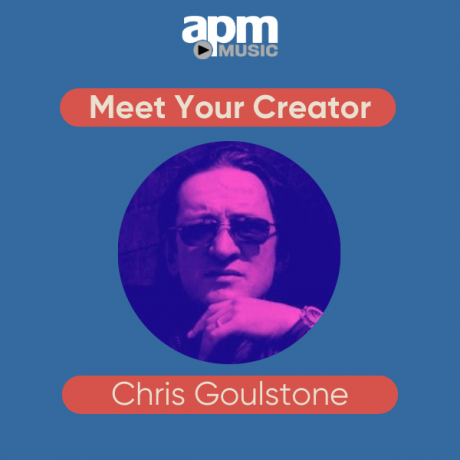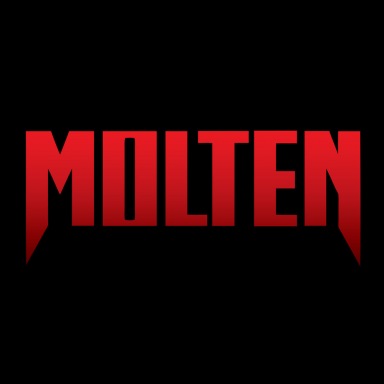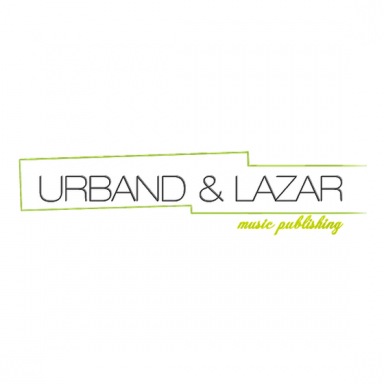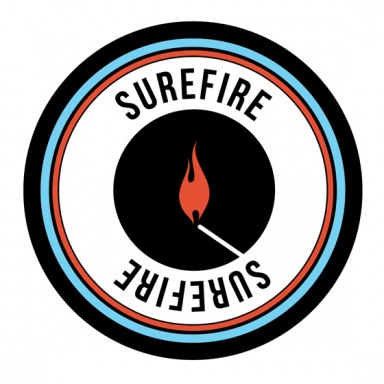Meet Your Creator: Chris Goulstone
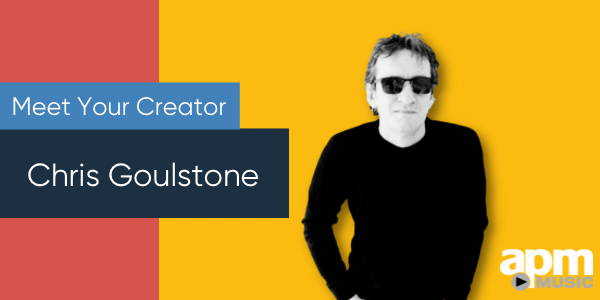
By Sam Freeman
Almost 40 years after the release of his band’s debut album, Chris Goulstone is still going strong in the music business with his own library label, Chapel Of Rock. Having composed music for visual media since the early 90s, he’s released over 140 albums on a variety of labels before setting up his own with APM.
We reached out to Chris to talk about his background as a guitarist in the 80s, his transition to making sync music and the success he’s had with his own label.
Hi Chris. Thanks for making time to jump on the phone and answer some questions about your career. How did you get involved with music?
Chris: I started off like many kids with piano lessons at an early age. Inspired by bands like Led Zeppelin, Deep Purple and Jimi Hendrix, I taught myself guitar, drums and audio engineering. After school, my friends and I formed a band called Bronz and managed to get a record deal. We played shows in the UK and America, our video was on MTV, and we supported Ratt on their debut tour. They’d just had a #1 record, so we were playing to stadium crowds of 30,000, which was great for me as a 22-year-old!
Bronz seems to have had a nice run in the 80s with the Taken By Storm album, wouldn’t you say?
Chris: I’m still apologizing for that record (laughs). To be honest, I was more into the underground metal and alternative scene, but Bronz received industry support on the back of what Def Leppard was doing. As a result, the label dyed our hair blonde (not mine though!) and threw us on the road thinking we’d be just like them. Being young, I went along with it but eventually moved on to other things. That said, the album sold a quarter of a million records, so we did pretty okay!
What were the events that led to you getting involved with production music?
Chris: Whilst in Bronz, I began to learn how the music business operated and realized that there was a lot more going on, so I decided to be more independent and concentrate on my writing and musical theory. Whilst doing session work as a guitarist, I was asked to play some English blues riffs on an album for the Carlin Music Library and when they later asked who the guitar player was, my name and phone number were given to them. The company called and asked if I wrote music for TV and film and I said “yes” because I was confident that I could, and I’ve not looked back since. Carlin Music was run by the legendary Bienstock brothers in New York and the library division started by Nick Farries in London. Nick and I worked together for a long time, and I did over 100 albums with Carlin until they were bought in 2011 by Warner Chappell, after which I continued writing for Warner.
Did you do any work for labels other than Carlin and Warner Chappell?
Chris: I did an album for a label called Bosworth Music in the early 90’s and one of the tracks ended up as a theme for Steve Austin and the Hollywood Blondes in the WCW. I didn’t even know what the WCW was, but the track became one of the first library tunes used in pro wrestling. Many of my tunes over the years have been used as entrance themes in WWE and still are today.
You also had a number of releases on a label called Soho. How did those come about?
Chris: After Warner Chappell bought the Carlin Music library, Nick Farries decided to start his own label called Soho Production Music. It was only natural for me to continue working with him, and I probably did thirteen or so albums for Soho.
How did things work in the 90s when it came to getting library music placed in the media? Do you remember any of that?
Chris: Producing library music in the 90s was a different game. Commercial artists were still unwilling to let their music out for sync, so library music filled a big gap. For example, libraries would send pitches to their composers saying, “Could you make an album suitable for extreme sports...?”. Based on my background, I was stamped as a high-energy rock guy, so I’d be commissioned to make guitar-based music. The recordings then would be handed to the publisher who’d press around 5000 CDs to send to their contacts, and the music would get placed in a multitude of productions around the globe.
When I started out, production music was unfashionable for an artist to do, but now it’s one of the last bastions for making a living in the industry, so a young artist today might hope to get their song in a car commercial rather than aim for a Billboard hit. It’s interesting how things have changed.
At what point did you start working with APM?
Chris: My relationship with APM would have started in the mid 90s when a deal was struck with Carlin. For me, the closer relationship began with trips to New York in the 2000’s where I became friendly with the music directors. They were using my tracks on a daily basis, so a trust built up where I would directly fill gaps within the catalog, sometimes with whole albums.
Speaking of releasing your own albums, you now have your own label, Chapel of Rock. What’s the story behind that?
Chris: In 2016, I approached APM and was given the chance to set up Chapel of Rock. It’s been a great relationship, and we just signed on for another five years to make it a ten-year deal, which I’m very happy about. Regarding the label’s name, I used to live in a converted chapel years ago, and whenever I visited APM’s New York offices, the music director would always say, “The ghoul’s in town from the chapel of rock!”. I was dressed in black with long hair, so it kind of stuck and became synonymous, and that’s what I had to call my label! It started off with just myself and two writers, and we now have many great composers.
Chapel of Rock has a number of distributors around the world for your music, whether that be Sonoton or BMG. How are you able to secure all these distributors?
Chris: Once “Chapel of Rock” was created, those distributors were approached to talk about representing my catalog outside of North America. Many remembered me from my past work with Carlin and Warner Chappell, so it wasn’t too hard of a sell. They knew that I’d consistently released music over a period of decades, so they gave us an opportunity and it’s worked out very well.
Aside from your work with production music, you've also played on albums for artists like Goldfrapp. Talk about that.
Chris: Will Gregory is the brains behind Goldfrapp. He was in Tears for Fears alongside Neil Taylor, who’s also a key composer at Chapel of Rock. Will has been a good friend and lives nearby in the West Country, which is a hotbed of music talent with people like Peter Gabriel and members from Massive Attack living there. I’ve been based nearby most of my professional life and everyone here knows everyone, so Will would come over to have me work on his records.
Speaking of Massive Attack, what's your connection with them? Have you worked with them in the past?
Chris: Yes, I actually used to work at Coach House studios where their debut album, Blue Lines was made. That was around 1993 when I was writing for Carlin, and I’d be in one corner of the studio whilst they were in another. Andrew Vowels was really friendly to interact with and years later would invite me to work on his album after Mezzanine. We met up again in LA around 2011 to mix it with Spike Stent, but unfortunately the record never got released. We worked on it for two or three years, so hopefully it’ll come out one day.
Wrapping up, what are your thoughts on the recent developments in the production music industry, whether that be the royalty-free subscription models or the fact that larger companies have been buying up their competition to grow their catalogs?
Chris: I think people are averse to change, even though it’s the only certainty in life. Royalty-free music has always been around and, even though I haven’t heard much of it, I’m sure it does meet certain needs. That said, APM are the market leaders when it comes to sync music, so I wouldn’t be anywhere else.
It’s been great talking to you Chris. Many thanks for sharing about your work. What does the rest of 2023 hold for you?
Chris: There’s some exciting stuff in the pipeline. Chapel of Rock has a broad range of genres since we occasionally take a left turn away from rock. In addition to metal and classic rock, we have Americana, world and hybrid progressive music. There’s a robust collection of high quality new music from our top composers coming out in 2023.

